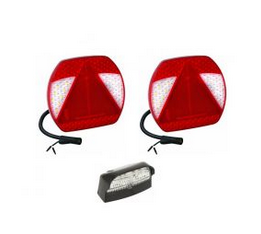
Certainly one of the main parts of any road trip can be your tires. Having the best tires on your automobile is important, but so might be the tires on your own trailer, whether you're pulling a camper, fifth wheel, boat, or utility trailer. To help you avoid issues and to have the absolute most from your own trailer, we've compiled some quick trailer tire tips.
New Trailer? See it to Les Schwab
Anytime you get a brand new or used trailer, carry it to the local Les Schwab. We'll check the tire air pressure, wheel torque, and ensure you have a spare along with the proper tools to alter a tire when you're on the road. If you're enthusiastic about a set of custom wheels or specialized tires for that trailer, we are able to show you a lot of options.
Did you know? Some trailers, new or used, don't always come with a spare and/or may require specialty tools for installation. Free of charge advice, stop by Les Schwab.
You Have Choices
Depending on the trailer and the size, you may well be able to get LT (Light Truck) tires that work for your trailer. This assists with aesthetics (when you need your trailer tires to fit those in your vehicle). Or you can simply stay with ST (Specialty Tires), which include radial and bias construction options.
The Difference Between Radial and Bias
ST tires come in many sizes. These include radial and bias. Each offer different performance. Radial tires are constructed with belts running at a 90 degree angle of the tread center line.
Radial tires often stay longer overall, and they're less likely to develop flat spots when parked for extended periods of time. Radial tires perform well at highway speeds, dissipate heat better, and offers lower rolling resistance for a better ride.
Bias ply tires are constructed with belts running at a 30-45 degree angle of the tread center line. Bias sidewalls could be stiffer than radials that could reduce trailer sway and increase stability when the trailer is loaded.
For more details please visit boat trailer rollers.
No comments:
Post a Comment